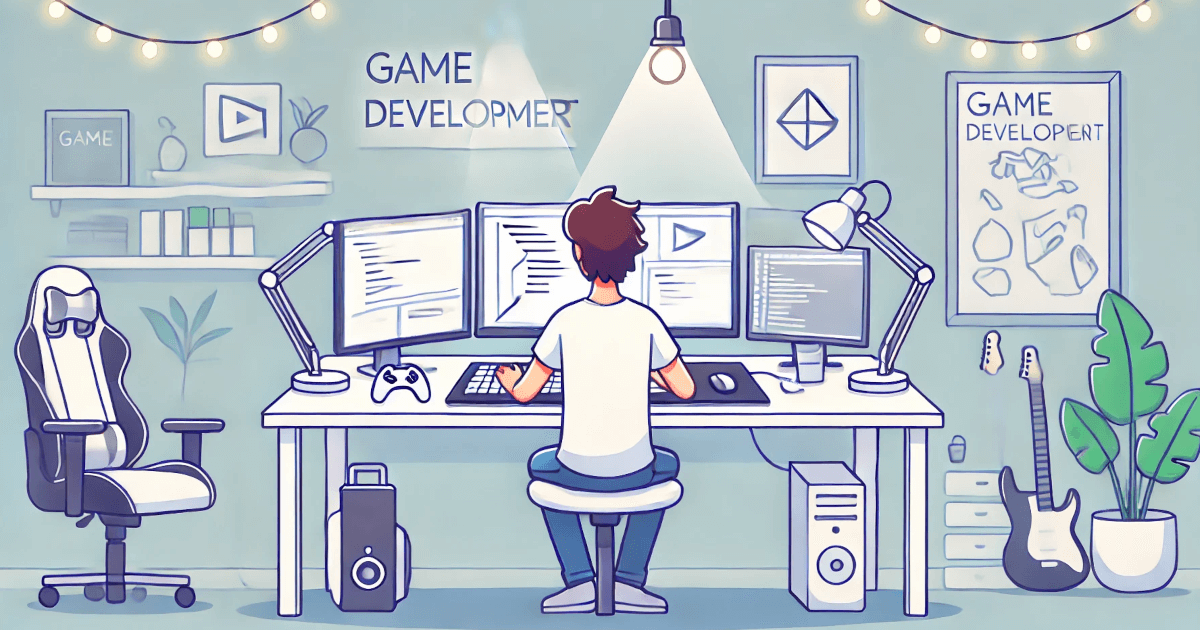
A game developer is responsible for creating engaging and immersive gaming experiences. This role requires creativity, programming, and design skills, along with the ability to keep up with technological advancements. While some people enjoy the process of bringing game ideas to life, others may find the long development cycles and technical challenges overwhelming. Are you suited to be a game developer? Take this quiz to assess your aptitude.
A game developer is someone responsible for planning, designing, programming, and creating the visual and technical aspects of a game. This role encompasses various specialties, including game planners, programmers, designers, and scenario writers. Since game development is a collaborative process, strong communication skills are essential. Developers must also understand player needs and be adaptable to technological advancements.
Additionally, analyzing market trends and identifying what users want is crucial. The gaming industry evolves rapidly, making it vital to stay updated on the latest trends. Successful game developers require not only creativity and technical skills but also a continuous desire to learn and improve.
The industry is highly competitive, and the ability to generate fresh ideas is constantly in demand. To exceed player expectations, game developers must pay close attention to details and be willing to refine their work through trial and error. Furthermore, those who excel in this field successfully balance technical expertise with artistic vision, always striving to enhance the overall user experience.
There are various roles in game development, each with its own responsibilities. Game planners conceptualize the game, define its mechanics, and create an overall design plan. Programmers write the code that brings the game to life, ensuring smooth operation, debugging issues, and optimizing performance. Designers handle the visual aspects, creating characters, backgrounds, and UI elements to enhance the game's appeal.
Scenario writers craft the game's storyline and character development, ensuring an engaging narrative experience. Sound creators produce background music and sound effects that add to the game’s atmosphere and immersion. Directors oversee the entire project, managing workflow and maintaining quality throughout development.
Producers handle market analysis and marketing strategies, coordinating with development teams to bring the game to the public. QA testers identify bugs and technical issues, ensuring the final product meets high-quality standards. Level designers build game environments and structure game stages, enhancing player experience through thoughtful stage design.
Game development is a collaborative process, requiring seamless teamwork between various specialists. Understanding these roles and fostering cooperation among them is key to success in the industry.
To become a game developer, it’s important to start by building the core skills needed for your specific role. For example, if you want to become a game designer, you'll need strong planning, storytelling, and presentation skills. If you're aiming to be a programmer, learning languages like C++ or C# is essential. Artists and designers should be familiar with tools like Photoshop, Blender, or Maya, along with a solid foundation in visual art.
In the U.S., there are many colleges and specialized schools that offer degree programs in game design and development. However, it's also very possible to break into the industry through self-study. Creating your own small games and building a portfolio is a great way to showcase your skills. Publishing indie games is another effective way to prove your talent and get noticed by companies.
The game industry in the U.S. is largely merit-based, meaning that your skills and what you’ve actually built matter more than your academic background. That’s why it’s crucial to stay updated on industry trends and learn the tools that professionals use—especially game engines like Unity or Unreal Engine.
It’s also helpful to stay connected with the game development community. You can use social media, Discord, Reddit, or GitHub to network, share your work, and learn from others. These platforms often provide access to the latest industry news, job openings, and collaboration opportunities.
Game development is a fast-evolving field that requires continuous learning and practice. Staying curious, sharpening your skills, and consistently building projects are key to succeeding as a professional game developer.